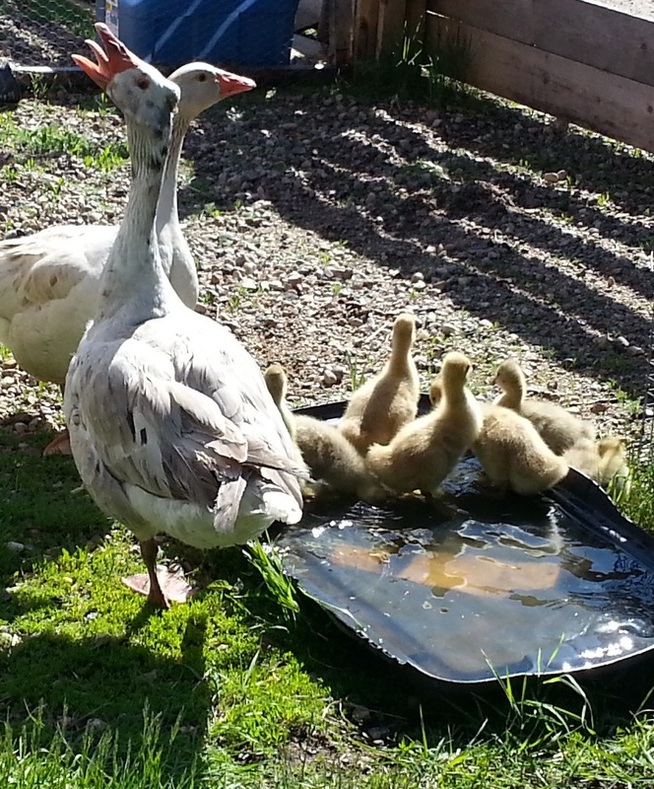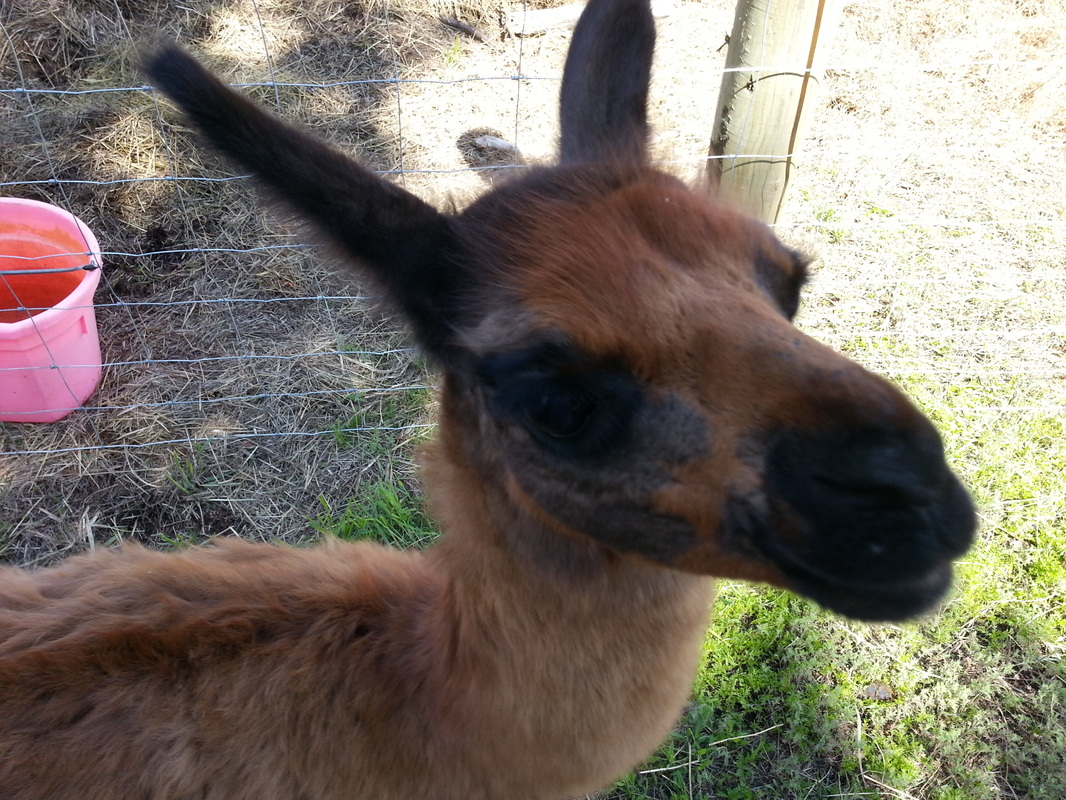
The turkey mamma was not so fortunate. Two babies got into a bucket of water and drowned there and somewhere along the way, another went missing. The turkeys are very small when they are hatched and need the guidance and protection of a watchful mother. One turkey mamma choose the barnyard to brood, but the other, with still more wild instincts brooded under the steps at the bed and breakfast and keeps her babies away from the crowded farm. She calls to them and paces every so slowly in order for them to follow her and keep up. Other than the one that has drowned, she has all the rest of the babies, 8 in total. Between the 4 geese that sat on nests, there are 24 hatchlings to watch over, with two more geese still sitting on nests.
Then there are 5 hens and one guinea sitting on nests as well. It will be interesting to see what or if much hatches because they are in the nest boxes in the coop and the other hens continued to lay eggs in the boxes. One box has around 30 eggs and it is doubtful that any will hatch even though one guinea hen and one bantam have been sitting on them.
The Muscovy ducks will hatch their brood very soon, one with 9 eggs and the other with 8. They are dedicated mothers and fiercely protective, even with humans. Muscovy ducks have long sharp claws and are not afraid to use them when it comes to their little ones. Another duck nest has no mamma yet, but has 8 eggs so it should be rather soon occupied.
Then there are the lambs, 24 at last count, and the goats, 13 now, all babies cute as ever. The birds can be sold or sent to the processor for winter roasting, but when the goat babies are unwanted, what happens to them? or the lambs?
So, I have 12 ewes and their lambs for sale and hopefully they will go. If not, the market is the next step. There is an odd and unusual sale in September if all else fails, but it requires a lot of preparation as well. In the meantime, with lack of fencing, even though some is done, there is not enough pasture for the whole flock, the electric fencing will have to be set up and moved daily. The babies always get caught in the fence the first few times and when they are put in it, close supervision is mandatory for several days. Goats and sheep with horns are the worst, pushing forward when they get the first shock and entangling themselves in the fence. Hearing a goat scream is something else.
Next year will be different. No hatching in incubators will be done since there are plenty of willing mothers to do the jobs and they eliminate the electrical bill and the feed bill. As long as the babies can forage, and there is enough pasture for them, they can and do feed themselves. The turkeys and geese are free to roam and eat all the bugs and grass they find, as do the chickens and ducks. Ducks and chicks that have been hatched via the incubator do not have mothers to teach them or protect them and must be housed and fed for months before running free.
And with less than half the sheep and half the goats, and selective breeding, there should only be a few babies here and there. Then the heart break and head aches will be lessened for sure.
Still, there is a joy when spring comes and the farm is teeming with the new life and promise of tomorrow. The Creator is wonderful indeed as is Mother Nature and the Earth. And I, I am just a steward of all, graciously doing my best to take care of these blessed little critters. What a joyous life.


 RSS Feed
RSS Feed